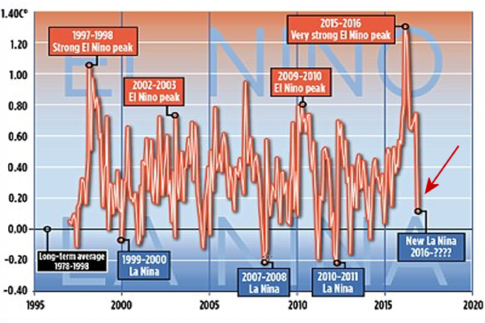The 2008 winter was the coldest in 40 years for the upper Midwest, Plains states and most of Canada. Minnesota newspapers report that this year’s opening of the locks to Mississippi barge traffic, delayed by three weeks, was the latest since the modern waterway opened in 1940.
Eau Claire, where “old-fashioned winters” have been a thing of the past, recorded 43 days of below-zero temperatures, while folks down in Madison shoveled away at a 117-year record snowfall throughout the season, as did many in New England and Canada.
Rare snowfalls struck Buenos Aires, Capetown, and Sidney during their mid-year winter, while China continually battled blizzards. Even Baghdad experienced measurable snowfall.
Antarctic pack-ice far exceeded what Captain Cook saw on his 18th century voyage into the Southern Ocean. On the continent itself the miles-thick ice continues to accumulate despite peripheral melting along the Antarctic Peninsula and occasional calving of an ice block. At the opposite pole, flow-ice once again spans the entire Arctic Ocean, and by April it had extended into the Bering Strait, making up for the much heralded melt-back last summer.
From January 2007 through the end of January 2008, the average global temperature fell by nearly a degree Fahrenheit, based on data obtained by the MET Office in Great Britain and other international temperature monitoring networks.
What are we to make of this? The recent climate conference held in New York City, sponsored by the Heartland Institute, provides some answers. Several hundreds climatologists in attendance dispelled notions that the global warming debate is over. Most attendees, who readily acknowledge the existence of post-Little Ice Age warming, believe man-made emissions are unlikely to cause major climate change and signed a declaration to that effect.
Read moreSunspot cycles may hold key to global warming, cooling
